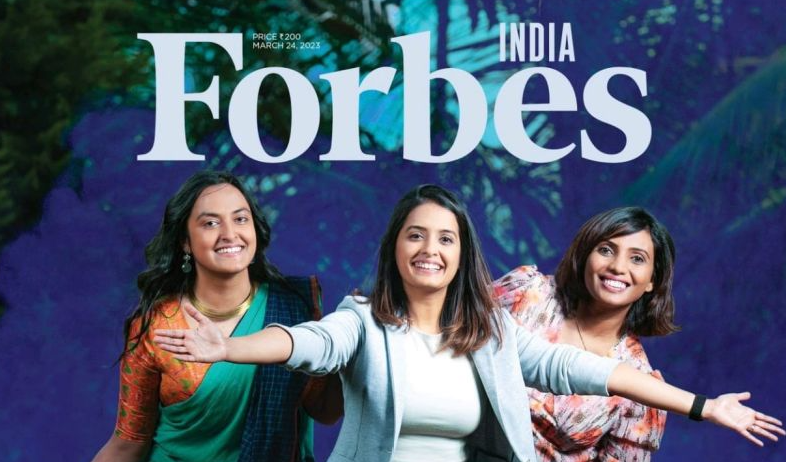By Rajiv Singh, Forbes India Staff
An army of new-age founders is scripting a bold story, moving away from the clichéd gender narrative. What’s helping them is their valuable higher education, a sizeable corporate stint, and the courage to be unapologetic
New York, December 2017
“When the sharpest words wanna cut me down,
I’m gonna send a flood, gonna drown ‘em out,
I am brave, I am bruised,
I am who I’m meant to be, this is me…”
When the American musical drama film The Greatest Showman opened in theatres, it garnered lacklustre reviews and a lukewarm response from audiences. Loosely based on the life of PT Barnum, the American showman who founded the Barnum & Bailey Circus in the 1870s, the movie reportedly had a less than modest collection in the first weekend—$8.8 million. But the aggressive numbers notched up in the subsequent weekend—$15 million—stunned all. In Hollywood, it’s rare for a movie to gather steam after an almost insipid opening. The Greatest Showman, however, was turning out to be an exception. But there was something that had been exceptional from day one: The rousing lyrics of the song ‘This is me’. A work by song-writing and composing duo Benj Pasek and Justin Paul, ‘This is me’ took the world by storm.
Meanwhile, a year later in India, a young woman from Bharatpur, Rajasthan, was just being who she was. In one of the investment pitches for her maiden entrepreneurial venture in 2018, Ahana Gautam oozed loads of confidence about the business plan and the future of Open Secret, a platform for healthy foods and beverages. The funder, though, didn’t like the swag of the founder. “You are too confident. It’s not good,” was his feedback. The IITian, who went on to complete her MBA from Harvard Business School (HBS), remained unapologetic. “Mushkil se toh confidence sikha hai. Kya problem hai sir (I have learnt it the hard way. What’s your problem)?” she asked.
Ten years before that, in 2008, Shruti, who was studying at an IIT, was furious. She had a problem with one of the popular catchphrases in the hostel: In IIT, there are males, and then there are non-males. Shruti, who goes by her first name, was definitely not okay with the ‘non-male’ bucket. She was a woman, and was angry with the subtle (and not-so subtle) gender biases and innocuous (and insulting) taunts that she encountered. (more)
